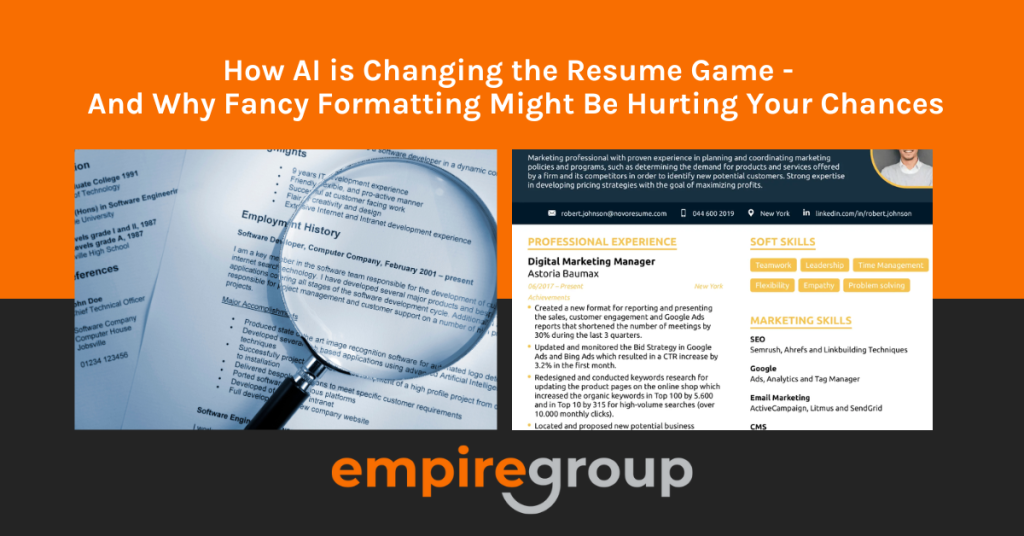Why Australian businesses need a contracting workforce strategy
Do you need a contracting workforce strategy?
What would you do if your business faced an unexpected surge in demand overnight, needed to ramp up for a project quickly, or didn’t have any budget in your full-time headcount?
For many of our clients, this isn’t a hypothetical scenario—it’s reality. Whether responding to a natural disaster, ramping up for a major project, or adapting to shifting market conditions, businesses need workforce solutions that are fast, flexible, and effective. This is where contracting workforces come in…
Bringing in contract professionals isn’t just about filling short-term gaps—it’s about ensuring businesses remain agile, competitive, and equipped with the right talent at the right time. And it’s not just businesses that benefit—many professionals actively choose contract work for the flexibility, exposure, and higher earning potential it offers.
Why contracting workforces are essential in Australia
The traditional “full-time only” employment model doesn’t always work in today’s fast-paced and project-driven industries. Australian businesses need a mix of permanent employees and contractors to stay competitive and ensure they can meet evolving demands.
Here’s why contracting is becoming a critical workforce strategy:
Contracting enables flexibility when you need it
Workloads fluctuate, and Australian businesses—especially in sectors like construction, it, defence, and healthcare—need the ability to scale their workforce up or down quickly. Engaging contractors allows businesses to access talent as needed without committing to long-term employment structures.
A great example of this is when we recently received an urgent request for a number of contractors to assist with grant assessments following natural disasters in Queensland. The unexpected surge in applications meant our client needed additional resources fast. Within 24 hours of receiving the request, contractors were onboarded and on-site, ready to start work. This allowed the business to flex its workforce to meet unprecedented demand, ensuring that affected communities received the support they needed without overwhelming the existing workforce.
Contracting gives you access to highly specialised skills
Australia is facing significant skills shortages across industries such as cybersecurity, engineering, and emerging technology. Many of these roles require expertise that may not be needed permanently. Contractors help businesses bridge these gaps by providing niche skills for the duration of a project.
A workforce that wants to work this way
It’s not just businesses that benefit from contract work—many professionals actively prefer it.
-
Contracting offers: Exposure to multiple industries and projects – contractors build diverse skill sets and gain experience across various sectors.
-
Contracting offers: Flexibility – they have greater control over their schedules, allowing for better work-life balance.
-
Contracting offers: Higher earning potential – contract roles often pay higher daily or hourly rates compared to permanent positions, making them an attractive option for experienced professionals.
With more candidates choosing contracting as a long-term career path, businesses that embrace this model will have access to a highly skilled and motivated talent pool.
Faster hiring and immediate impact
In industries like defence, infrastructure, and technology, project deadlines are tight, and hiring processes can be lengthy. Contractors allow businesses to bypass extended recruitment timelines and bring in experienced professionals who can hit the ground running.
Fresh perspectives and innovation
Contractors often work across multiple companies and industries, bringing in new ideas and best practices that permanent teams may not have been exposed to. They help challenge the status quo and introduce innovative ways of working that can improve efficiency and performance.
Industries in Australia that rely on contracting workforces
Contracting isn’t limited to a handful of industries—it’s playing a crucial role across many sectors in Australia:
- Technology & cybersecurity – contractors help businesses navigate digital transformation and security threats.
- Defence & aerospace – skilled contract professionals support major defence projects with niche expertise.
- Engineering & infrastructure – contractors ensure large-scale infrastructure projects are delivered on time and within budget.
- Healthcare – locum doctors, contract nurses, and allied health professionals help meet patient demand.
- Finance & consulting – short-term financial analysts, risk specialists, and project consultants provide expertise without permanent headcount increases.
The future of contracting workforces in Australia
With ongoing skills shortages, rising project demands, and evolving workplace expectations, Australian businesses need to be strategic in how they engage contract talent. The key to success lies in balancing flexibility with ensuring a positive workforce experience—leveraging contract talent in a way that supports business agility and long-term success.
As industries continue to evolve, businesses that embrace a blended workforce—combining full-time employees with contractors—will be best positioned to navigate workforce challenges and build a highly skilled, adaptable team.
So, is your business leveraging contract talent the right way? If not, now’s the time to reassess your workforce strategy to ensure you have the right talent, at the right time, to meet your business needs.
Courtney Chambers
Courtney has over 18 years of experience in talent acquisition and workforce strategy. She leads end-to-end recruitment and workforce solutions across government, Government-Owned Corporations, and the private sector. As a trusted advisor, she help businesses solve complex workforce challenges, ensuring they have the right talent to support growth and long-term success.
In her role as General Manager of Corporate Services and Technology, she oversees strategic recruitment operations, working closely with clients to design tailored workforce solutions that address skills shortages, optimise hiring processes, and enhance workforce capability. Her expertise spans executive search, contracting and permanent recruitment, workforce planning, and best-practice hiring governance.
To learn more about Courtney’s capability to assist you with your recruitment needs you can email her at courtney.chambers@empiregroup.com.au.


